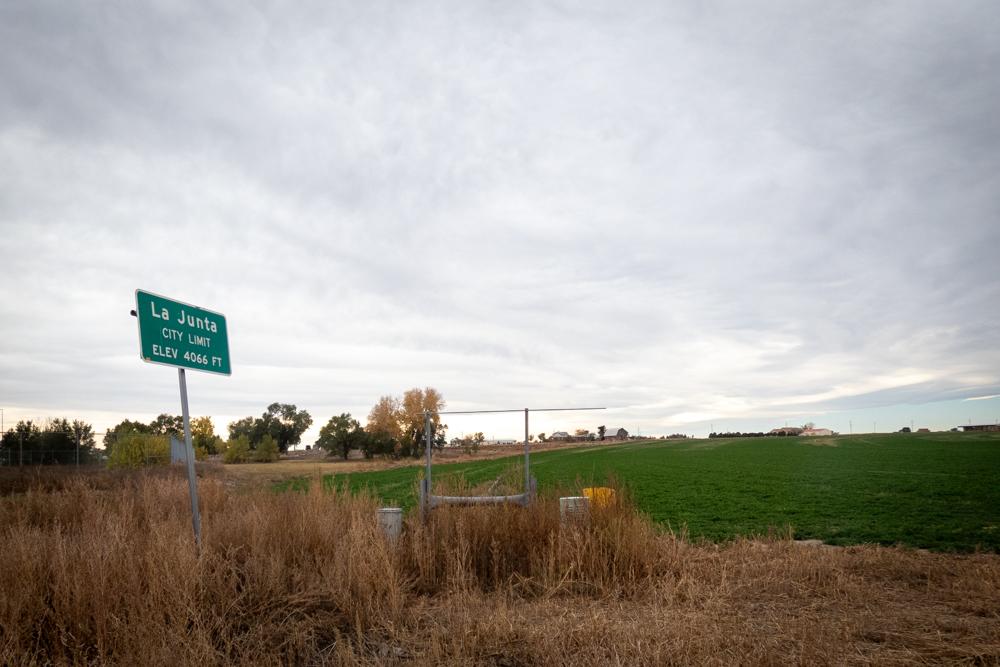
Arkansas Valley Regional Medical Center in La Junta is laying off staff. The move comes as deep budget cuts to health care loom in a proposal before the Republican-led Congress in Washington, D.C. In Colorado and elsewhere, health and hospital officials warn the bill could drive rural hospitals into a potentially catastrophic tailspin.
Becker's Hospital Review reports the cuts at AVRMC would affect about 5 percent of its employees. The 25-bed critical access hospital says it doesn't expect the layoffs to impact patient care, according to a statement emailed by Erika Retzlaff, its director of business development.
The hospital says key factors for the move include cost increases, inflationary pressures, and declining reimbursement rates. In a separate statement, the hospital, which is located about 60 miles southeast of the nearest hospital in Pueblo, warned a proposed federal budget bill, as it now stands, could mean cuts to services like emergency, primary and hospice care.
“We remain deeply grateful for the dedication and compassion of our employees — both those who are departing and those who continue with us,” said Dale Leighty, AVRMC’s board chairman. “This community deserves dependable, quality care, and that remains at the heart of everything we do.”
“The news out of Arkansas Valley's terrible for the community of La Junta and the surrounding areas,” said Joshua Ewing, vice president of rural health with the Colorado Hospital Association. “And it just illustrates how challenging the environment is for rural health care currently.”
The financial landscape for rural hospitals in the state is already pretty shaky. If key budget provisions, now being considered in the U.S. Congress, pass, it becomes dire, said Michelle Mills, CEO of the Colorado Rural Health Center.
“Any community that has a rural hospital, they tend to be the top or one of the top three employers, so it does impact the community as whole,” any time there are job losses, Mills said.
La Junta’s hospital dates back to the early 1900s, founded in 1904.
A challenge for AVRMC is that it has a high number of patients covered through government programs like Medicaid, which don’t reimburse at the rate of what a hospital pays for those services.
Nearly half of the population in Otero County, where the hospital is located, are covered by Medicaid, according to a report by the Colorado Rural Health Center. Twenty-six percent are Medicare enrollees.
The hospital has recently seen turnover in leadership.
Last month, its board announced that Chief Executive Officer Andy Flemer had departed. It appointed an interim CEO, Heidi Gearhart, to oversee day-to-day operations while a national search is conducted for a permanent CEO.
In a statement last week emailed by AVRMC Business Development Director Retzlaff, the hospital detailed its concerns about the federal budget bill.
“The truth is this: Yes – “The Big Beautiful Bill” will absolutely hurt AVRMC, other rural hospitals, and the citizens in the communities we collectively serve. It threatens emergency rooms, would force families to forgo essential care, and dismantle the fabric of rural communities like ours. Rather than cutting resources, we urgently need more support to keep care accessible and our community strong,” the statement said.
In Colorado’s 3rd Congressional District — the district where AVRMC is — nearly 1 in 3 people (31%) rely on Medicaid for health care. That includes over 228,000 people, 14,700 with disabilities, and thousands of children. “Cutting Medicaid funding would have dangerous, real-life consequences,” the statement said.
The hospital said, despite its challenges, it remained “committed to doing everything we can to remain financially viable and continue serving our community.” It said it was proactively pursuing strategies to strengthen rural health care access, including retaining local patients through specialty service providers, building stronger partnership, modernizing its financial systems, expanding telehealth and collaborating through the Eastern Plains Healthcare Consortium.
The facility closed its obstetric services unit, including a labor and delivery department, in April.
Federal budget cuts could cause hundreds of thousands of Coloradans served by Medicaid, the health program for low-income and disabled Americans, as well as the state’s insurance marketplace, to be thrown off their coverage, sending the health system, and rural systems especially, into financial peril. That’s according to a variety of national health care groups following the issue.
Republicans, including in Colorado, have characterized the cuts as designed to streamline government programs and key to cutting waste, fraud and abuse. Congressional Democrats and leaders from the party in Colorado have described them as “draconian” and Robin Hood in reverse, taking from the nation’s poorest residents to pay for tax cuts for its richest.
Hospital, health leaders express 'dire' concerns
Colorado has not seen a hospital close in four decades, just one of a tiny number of states that can make that claim.
But the federal budget bill, as currently being considered, could change that.
“I'm deeply worried,” Ewing said. “I do think it's dire what we may be facing should these cuts go through.”
Ewing laid out the constellation of maladies now vexing rural facilities. Hospital labor costs are up 30 percent. Supply costs are up nearly 50 percent. Costs for charity or uncompensated care, services provided to people who are uninsured, without any expectation or hope by hospitals of getting reimbursed, is up 130 percent since 2019.
Forty-three of the state’s roughly 100 hospitals are in rural Colorado, about half are operating in the red, he said.
“So it's just getting tougher and tougher to maintain services in rural Colorado,” Ewing said, adding the federal reconciliation bill now being weighed in Congress would result in $10.4 billion in cuts in the next five years to reimbursements from federal programs to Colorado hospitals.
“That would be devastating to the entire health care system and certainly to rural hospitals where they operate on thin or no margins every year,” he said.
A rural hospital stabilization fund proposed in the Senate Finance Committee wouldn’t come anywhere close to making up the difference in cuts, he said.
The hospitals “that are operating in the red are the most vulnerable, but everybody's vulnerable because you can't take that number of cuts in the Medicaid program and not feel the impacts from that,” Mills said.
The rural hospital is on a list of six in Colorado most at risk of closure and service cuts.
A recent analysis found nearly 340 rural hospitals nationwide, including six in Colorado, are at risk of closure, conversion to a different type of health care facility or service reductions. That’s if health care cuts under consideration “One Big Beautiful Bill Act” (H.R. 1), a top legislative priority of the Trump administration, are approved by Congress.
The Arkansas Valley Regional Medical Center is on that list.
The analysis was based on data from the Cecil G. Sheps Center for Health Services Research at the University of North Carolina at Chapel Hill, requested and released earlier this month by Senate Democrats.
The list also includes Delta County Memorial Hospital in Delta, Conejos County Hospital in La Jara, Grand River Hospital District in Rifle, Prowers Medical Center in Lamar, and the Southwest Memorial Hospital in Cortez.
Five of the six rural hospitals deemed most at risk in Colorado are in the 3rd Congressional District represented by Rep. Jeff Hurd. The other, Prowers Medical Center, is in the 4th Congressional District, which Rep. Lauren Boebert represents. Both are Republicans.
Hurd has been sounding the alarm about the potential impact of deep Medicaid cuts, while also voting for the House version of the bill, which passed along party lines a few weeks ago. This week, he was one of 16 House Republicans to sign a letter to leaders of the U.S. House and Senate underscoring “the critical need to protect Medicaid and the hospitals that serve our communities.”
The letter said the Senate proposal currently being crafted “undermines the balanced approach taken to craft the Medicaid provisions in H.R. 1 — particularly regarding provider taxes and state-directed payments. The Senate version treats expansion and non-expansion states unfairly, fails to preserve existing state programs, and imposes stricter limits that do not give hospitals sufficient time to adjust to new budgetary constraints or to identify alternative funding sources.”
The lawmakers also stressed concerns about rushed implementation timelines, penalties for Medicaid expansion states, changes to community engagement requirements for adults with dependents, and cuts to emergency Medicaid funding.
“These changes would place additional burdens on hospitals already stretched thin by legal and moral obligations to provide care,” wrote the group, which includes other lawmakers serving in swing districts. Hurd won his seat by 5 percentage points last November.








